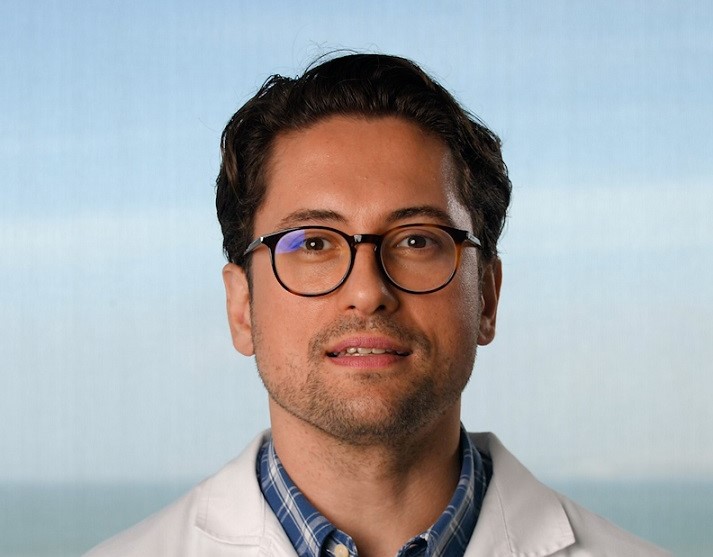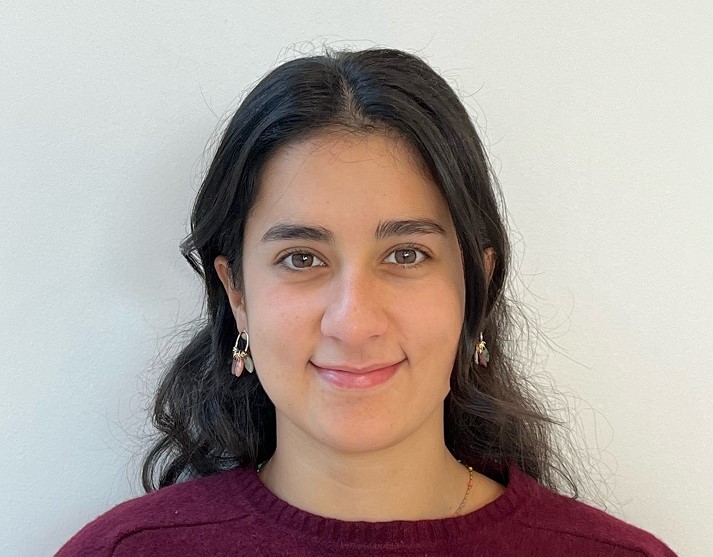Translational Research and Evidence-Based Medicine Lab
The Translational Research and Evidence-Based Medicine Lab is committed to advance breast cancer care through rigorous translational research and high-quality evidence synthesis, integrating clinical insights with molecular science to inform personalized treatment strategies. We are committed to generating impactful knowledge through systematic reviews, real-world data analysis, and cost-effectiveness modelling, while actively contributing to the education of healthcare professionals in Portugal.
Through specialized embodying personalized medicine in health care as well as developing training in statistics, health economics, and decision modelling, we aim to empower clinicians, researchers, and policy-makers to deliver value-based, patient-centered oncology care.
• Developing a prediction tool that will help patients to understand how their breasts will look after breast cancer locoregional treatment
At least one third of the patients submitted to breast cancer locoregional treatment are disappointed with the aesthetic results. Using an AI algorithm we can try to match the photographs of the patients breasts with similar results from previous patients. This will hopefully help the patients to better understand the outcome results leading to less decision regret.
• Improving locoregional treatment literacy and information using digital tools and generative AI
Digital health literacy is becoming more important and it can help patients to better understand the possible options of treatment. The use of decision aids is becoming more popular and the integration of generative AI leads to faster upgrading and generalization. We can expand our horizons of research to diverse languages and populations allowing for more inclusivity without higher costs.
• Improving surgical outcomes of breast cancer patients
With a strong international collaboration with groups experts in breast cancer treatment our group as continuously contributed to the EU Breast trials. The participation in ASXANA and now in I Prepare allows to obtain prospective large-scale information that will contribute to improve breast cancer surgical treatment.
Our Clinical studies examine the potential of physical exercise as a concurrent therapy along with standard care to counteract the overall side effect burden of breast cancer treatment resulting from fatigue, cardiotoxicity, neuropathies, and sleep disturbances. Examples of our clinical research include a 4 to 6 month randomized controlled trial that is examining the impact of supervised exercise on Ki67 among breast cancer patients undergoing neoadjuvant treatment (The Neoadjuvant Exercise Oncology Program – NEO -Program). We have other clinical trials in preparation to 1) examine whether resistance exercise can improve tolerability to cyclin-dependent kinase 4/6 inhibitors (CDK4/6i) with endocrine therapy in estrogen receptor-positive (ER+)/Human Epidermal Receptor 2-negative (HER2-) breast cancers and 2) to determine whether physical exercise can improve sleep patterns during adjuvant hormone therapy in hormone-dependent (HR+) breast cancer.
Epidemiological studies use already existent data resources to expand our understanding of the role of physical activity and sleep in the etiology of cancer. Epidemiological studies are important to determine the distribution of risk factors for cancer such as physical inactivity or poor sleep in the population and quantify dose-response relationships between physical activity, sleep, and cancer risk and cancer survivorship. Examples of ongoing studies include our 1) examinations of the distribution of activity levels in the Portuguese population (n=8000 adults) using wearable measures of step counts and stepping intensity, and 2) examinations of associations between wearable-based sleep patterns and risk of mortality among adults (n=5000 adults).
Digital Health studies in our lab are examining the clinical value of wearable technology in oncology for the timely identification and monitorization of cancer treatment side effects including fatigue. These studies will allow for more individualized and proactive cancer treatments. We are particularly interested in identifying digital biomarkers of cancer outcomes using physical activity, exposure to light, and sleep measures, extracted from consumer and research-grade wearables. One example of a digital health study that we conducted recently includes the characterization of sleep patterns using a contactless sleep device among 25 women undergoing neoadjuvant chemotherapy and whose sleep patterns were monitored for 4 consecutive months throughout the entire duration of their treatment.
/ Group Leader /
/ Medical Oncologist /
Meet Our Team
Selected Publications
Can we counterbalance restricted access to innovation through specialized breast cancer care? The REAL-NOTE study.
Matos LV, Debiasi M, Padrão TG, Sousa B, Cardoso F. Can we counterbalance restricted access to innovation through specialized breast cancer care? The REAL-NOTE study. Breast. 2024 78:103793. doi: 10.1016/j.breast.2024.103793.
Publication Date: 2024
Endocrine therapy-based treatments in hormone receptor-positive/HER2-negative advanced breast cancer: systematic review and network meta-analysis
Brandão M, Maurer C, Ziegelmann PK, Pondé NF, Ferreira A, Martel S, Piccart M, de Azambuja E, Debiasi M, Lambertini M. ESMO Open. 2020 5(4):e000842. doi: 10.1136/esmoopen-2020-000842.
Publication Date: 2020
Intensive Surveillance with Biannual Dynamic Contrast-Enhanced Magnetic Resonance Imaging Downstages Breast Cancer in BRCA1 Mutation Carriers.
Guindalini RSC, Zheng Y, Abe H, Whitaker K, Yoshimatsu TF, Walsh T, Schacht D, Kulkarni K, Sheth D, Verp MS, Bradbury AR, Churpek J, Obeid E, Mueller J, Khramtsova G, Liu F, Raoul A, Cao H, Romero IL, Hong S, Livingston R, Jaskowiak N, Wang X, Debiasi M, Pritchard CC, King MC, Karczmar G, Newstead GM, Huo D, Olopade OI. Clin Cancer Res. 2019 25(6):1786-1794. doi: 10.1158/1078-0432.CCR-18-0200.
Publication Date: 2020
Progress and remaining challenges for cancer control in Latin America and the Caribbean.
Strasser-Weippl K, Chavarri-Guerra Y, Villarreal-Garza C, Bychkovsky BL, Debiasi M, Liedke PE, Soto-Perez-de-Celis E, Dizon D, Cazap E, de Lima Lopes G Jr, Touya D, Nunes JS, St Louis J, Vail C, Bukowski A, Ramos-Elias P, Unger-Saldaña K, Brandao DF, Ferreyra ME, Luciani S, Nogueira-Rodrigues A, de Carvalho Calabrich AF, Del Carmen MG, Rauh-Hain JA, Schmeler K, Sala R, Goss PE. Lancet Oncol. 2015 16(14):1405-38. doi: 10.1016/S1470-2045(15)00218-1.
Publication Date: 2015
Planning cancer control in Latin America and the Caribbean.
Goss PE, Lee BL, Badovinac-Crnjevic T, Strasser-Weippl K, Chavarri-Guerra Y, St Louis J, Villarreal-Garza C, Unger-Saldaña K, Ferreyra M, Debiasi M, Liedke PE, Touya D, Werutsky G, Higgins M, Fan L, Vasconcelos C, Cazap E, Vallejos C, Mohar A, Knaul F, Arreola H, Batura R, Luciani S, Sullivan R, Finkelstein D, Simon S, Barrios C, Kightlinger R, Gelrud A, Bychkovsky V, Lopes G, Stefani S, Blaya M, Souza FH, Santos FS, Kaemmerer A, de Azambuja E, Zorilla AF, Murillo R, Jeronimo J, Tsu V, Carvalho A, Gil CF, Sternberg C, Dueñas-Gonzalez A, Sgroi D, Cuello M, Fresco R, Reis RM, Masera G, Gabús R, Ribeiro R, Knust R, Ismael G, Rosenblatt E, Roth B, Villa L, Solares AL, Leon MX, Torres-Vigil I, Covarrubias-Gomez A, Hernández A, Bertolino M, Schwartsmann G, Santillana S, Esteva F, Fein L, Mano M, Gomez H, Hurlbert M, Durstine A, Azenha G. Lancet Oncol. 2013 Apr;14(5):391-436. doi: 10.1016/S1470-2045(13)70048-2. PMID: 23628188.
Publication Date: 2013
Selected Projects
Trial for Treatment of High Risk BC With Two Sequences of Neoadjuvant Chemotherapy With Pembrolizumab (KEYPARTNER) (EU-CTR 2023-507008-30-00)
Sponsor: Champalimaud Foundation / Merck Sharp & Dohme (MSD)
Principal Investigator (national): Marcio Debiasi / Rita Sousa / Miguel Abreu
Phase II, randomized, active-controlled open label trial for treatment of high risk, HR-/HER2- (triple negative) breast cancer, with two sequences of neoadjuvant chemotherapy on a background of pembrolizumab.
Adjuvant CDK4/6i in network meta-analysis (PROSPERO 2024 CRD42024561487)
Sponsor: Champalimaud Foundation
Principal Investigator: Evandro Azambuja (international PI) / Marcio Debiasi (national PI)
Breast Cancer (BC) is the most prevalent malignant neoplasia in women. Among BC subtypes, Hormonal Receptor (HR) positive, HER2 negative is the most common, accounting for approximately 70% of all cases. The benefit in terms of invasive disease-free survival (iDFS) of adding CDK4/6 inhibitors to adjuvant hormone therapy has already been proven but it is still important to further explore which one yields better outcomes, abemaciclib or ribociclib, considering that the trials with palbociclib turned out to be negative.
Disclaimer: contact us for more information about these studies or if you wish to know more about other ongoing work we have at our lab.
Where our Science Takes Place
MEthods for LOcalization of Different types of breast lesions
The EUBREAST Network is a non-profit international collaboration of leading breast cancer surgeons dedicated to improving patient quality of life through less extensive surgical approaches. By promoting high-quality, cross-border clinical trials, EUBREAST aims to accelerate scientific progress and support the de-escalation of breast cancer surgery without compromising patient safety. The initiative focuses on designing innovative studies, coordinating efforts to avoid redundancy, and fostering collaboration among breast centers and interdisciplinary teams. EUBREAST’s mission is to help breast cancer patients return to active, healthy lives more quickly by reducing the physical and psychological burden of treatment.
Moving Beyond
Science on Exercise Oncology
There is established evidence that physical exercise is a key player for cancer prevention and for improving the prognosis and quality of life of people who have cancer. Our lab organized the conference Moving Beyond, which took place at the Champalimaud Foundation on April 3 and 4 2025 and gathered world scientific leaders in the field of “exercise oncology”.
During the two-day conference, we interviewed a series of invited speakers on the benefits of physical activity for cancer prevention and treatment and asked speakers to share some of the key scientific advances in exercise oncology.
Watch the video and hear what they had to say.





